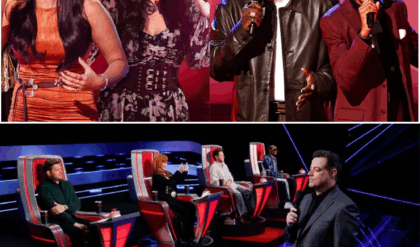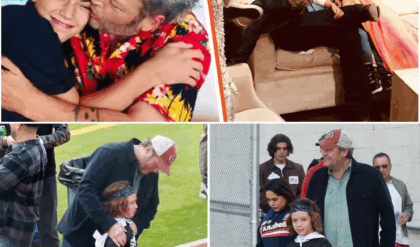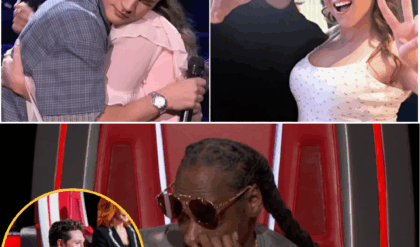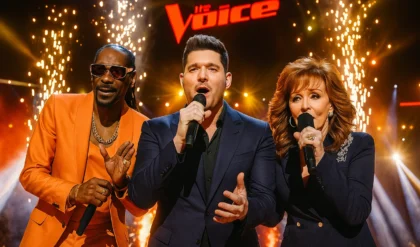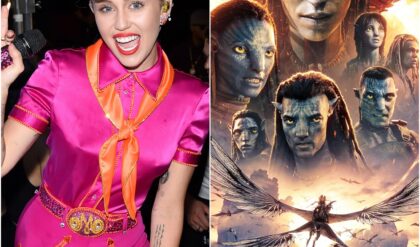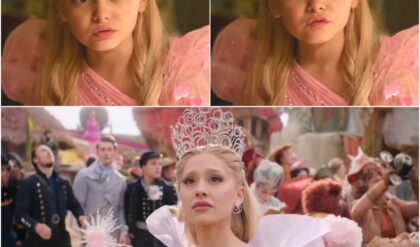
Having started her career in action-heavy films like Domino, King Arthur and the Pirates of the Caribbean franchise, Keira Knightley decided in her early 20s to step away from the stunts. “I wanted to do stuff that was about words,” says Knightley. “Also, when you’re doing action films, generally speaking, it takes a long time. It’s quite dull.” With Joe Barton’s new spy thriller Black Doves, Knightley has finally found a way to combine her love for character drama with some impressive — and, to the actress, surprisingly enjoyable — fight choreography. “The whole idea of the character for me was that she had to be interesting enough to sustain on my interest for two seasons,” says Knightley. “She’s well interesting enough.”
DEADLINE: You are an executive producer on the Black Doves series. Did that give you a different sense of ownership of the project?
Watch on Deadline
The video player is currently playing an ad. You can skip the ad in 5 sec with a mouse or keyboard
Skip in 4s
KEIRA KNIGHTLEY: It does give you a different sense of ownership. When I signed on, there was just the pilot, so it’s that sense of being able to be a part of the discussions about creative decisions, so that you can all be on the same page. When you don’t know where you’re going, it could go anywhere. I had to sign on for two seasons, so we needed to create somebody who I had enough question marks about to keep it juicy for that long. And I was super excited when I got this script from Joe, because, well, she’s weird.
DEADLINE: In the first scene introducing your character Helen Webb, she’s a patient mother, caring wife, wonderful hostess and a super spy. What did that alone tell you about what you were delving into?
KNIGHTLEY: It was the idea that you could be all those things, and they’re all true, but they’re all false. I think she does love her husband. I think she is a great hostess. I think she is a great mother. I think she is a great friend. It’s just that she’s also betraying them all, all the time. And the fact that you can have a character that’s got those contradictions in them, that’s what’s so fun about it. It’s juicy, and it leads to so many question marks. Who is the person that loves their husband, and yet is betraying them all the time? And what is the power dynamic within that relationship when that’s the truth? I just found her a fascination.
DEADLINE: Are you a fan of the spy genre in general?
KNIGHTLEY: I do like it. I love a John Le Carré novel. I love the kind of melancholia that they can have. There’s a loneliness to them. I watched Smiley’s People again, quite recently, and God, it’s so sad, the cost of the deception. I felt like what was so fun about [Black Doves], is that it is closer to the kind of James Bond ridiculousness of being blown out of buildings. There’s the pure entertainment side. But it still has that texture of melancholia that I love within the spy genre—that cost of the double life.
DEADLINE: The storytelling in these episodes is so propulsive, but as an actress, do you look at it like, there’s just so much to play?
KNIGHTLEY: Yeah. As an actor, normally you have to choose: My character would do this, she wouldn’t do that. But playing a character that could do anything and could go anywhere, and the contradictions are very alive all the time, I don’t think I’ve played a character like that before. She’s the hero, but she’s definitely the anti-hero. She sits in a very strange space. She is a mercenary. She doesn’t have a higher calling. Her higher calling is herself. The ego that takes is interesting. And then, how to play that character, so that she’s not totally repellent, that’s an interesting thing to try and juggle. What I thought was so lovely about this was that the central relationship in it is a platonic friendship—these two ghastly characters. One’s an undercover spy who kills people and the other one’s an assassin on a murderous rampage for revenge. And yet they really love each other. They’ve got this extraordinary friendship where they can be themselves together. That, in itself, is quite a strange thing at the center of this spy genre.
DEADLINE: What were the scenes that you found most insightful when it came to who she might be at the core?
KNIGHTLEY: I loved all the scenes between her and Sam. Ben Whishaw was the dream come true. When Joe Barton and I first met about this, I said, “Who’d you see as Sam?” And we both went, “Ben Whishaw.” And when he said yes, it was just like, “Oh, this is going to be heaven.” That friendship is really what makes the whole thing. They’re kind of pithy and constantly bickering at each other, but there’s that real love between them. Partly because they’re both desperate for it, and they cannot have it because they’re deceiving everyone else. But they’re not deceiving each other. I found it really sad, and quite poignant.
DEADLINE: What was it about Ben that made you immediately think he was perfect for it?
KNIGHTLEY: I think he’s one of the most extraordinary actors working today. He can play lovable and psychotic within a blink of the eye. There are very few people that can pull that off. He has an energy that is only his. I’ve never seen anyone else with the same energy. The fact that he’s in Bond, but he’s playing Q. It’s like, no, this is your chance to play Bond, come in with the gun, rescue everyone or kill everyone. I mean, he’s normally the nice guy. He’s Paddington for God’s sake, but he’s a psycho killer. What’s better than that?
DEADLINE: Do you feel like Helen is slightly less psychotic?
KNIGHTLEY: No. You see, we were constantly having this conversation of, “Are they psychopaths? Maybe they’re psychopaths.” And, actually, we came to the conclusion that she’s worse than he is. I feel like she might just be a bored housewife with a bloodlust, who’s blown her entire life up. Is that what she is? She’s betraying everybody for nothing other than her own financial gain. So, she’s got no morals. I loved it.

Ben Whishaw and Keira Knightley in ‘Black Doves’Ludovic Robert/Netflix
DEADLINE: Surely, we’ll delve into more trauma in Season 2? It’s certainly hinted at.
KNIGHTLEY: It’s got to be from trauma, right? We discussed the backstories of both of them a lot. And you get bits of it in [Season 1]. But yeah, there’s got to be one serious rupture. I think the relationship with the husband is fascinating because she does love him. But she’s betraying him. Now, it’s a power dynamic because they’re politicians. It’s a political couple. So, they want to be close to the center of power, and she wants to be. But she always has to be betraying him, which basically puts her on top as far as the power goes, and he never knows it. That’s a fascinating dynamic in a couple. Where does that go? And when she hears that somebody else is going to be having an affair with him, or going to be put in there, she’s not having it. So, ego comes into it as well.
DEADLINE: Not to insinuate that you’re a psychopath, but in terms of compartmentalization — this idea of being someone else all day and then coming home and having to be a mom — do you identify with that aspect of the character?
KNIGHTLEY: Yeah, but I think that’s what parenthood is. I think that we have one face for our children, that is not the face that we have when we’re at work. I mean they’re very different personalities that all of us have within us. And what I really enjoyed about the character, was that you can identify with her. Obviously, she’s more extreme, but we all have that in us. My face to my children is not the one that my mates see at the pub. It just isn’t. And yet those two things are true. With her, all of these different faces are true. They just happened to be completely contradictory.
DEADLINE: How did you take to action choreography?
KNIGHTLEY: I really enjoyed it. I did quite a lot of it in my late teens, early 20s. And then I hadn’t wanted to touch it for ages. And it was really fun going back to it. We did lots of boxing, Filipino knife fighting and jiu-jitsu. Yeah, it was really fun.
DEADLINE: Why did you step away from it, and what did you miss about it?
KNIGHTLEY: I wanted to do drama. I wanted to do more serious stuff. I wanted to do stuff that was about words. Also, when you’re doing action films, generally speaking, it takes a long time. It’s quite dull. It tends to take weeks and weeks and weeks, and you’re doing tiny pieces. It didn’t do it for me. Or it did and then it didn’t. With this one, partly because it’s a TV series, we literally shot all of those action sequences in a day. There was no hanging about. And for my brain, not being bored is important. So, the speed of it, I really enjoyed. But, also, it was fun to use my body in a way that I hadn’t for however long. I remember, on all the Pirates films, I loved working with the stunt teams. They’re always so extraordinary and physically amazing. It was really fun to have a group of amazing stunt men and women to work with, again.

Ben Whishaw and Keira Knightley in ‘Black Doves’Netflix/Ludovic Robert
DEADLINE: And to be fair, Joe’s words are kind of amazing, too.
KNIGHTLEY: Exactly. It’s rare to be able to have something that sits in this space of silliness, but also has these great dialogue scenes. And to get that melancholic texture in it, while it’s also very funny. There are very few writers that can tread that line successfully. It’s a tight rope that he can walk.
DEADLINE: Other than the action, were there unique challenges to this that you didn’t see coming?
KNIGHTLEY: The fact that we only had two scripts when we started. It was very much written on the go. And it wasn’t like we did it in order. So, we really didn’t know where we were going. And normally as an actor you’d go, “Okay, well I don’t know where I’m going, but I can at least create the backstory, so I understand.” But Joe kept writing different things for the backstory. So that kept changing as well. And also the speed. I mean, [we did] two, three takes, max. A lot of it is done in one take. Me and Ben were like, “Okay, we’re playing jazz. This is my instinct meeting your instinct, and let’s see what we end up with.” There was a lot of having to let go of the control of how I would normally prepare a role, because I didn’t have a script. Like, “I’ve been doing this for 33 years, and I’m going to let go of every way that I normally work and I’m just going to go with this flow. And we’re going to see what happens.” We did have fun, but it was very scary.
DEADLINE: Working with multiple directors, I assume that’s not something you typically do. What was that like?
KNIGHTLEY: I think it’s my first time that I’ve ever done it. It was really curious. I mean, we were really lucky. It was Alex [Gabassi] and then Lisa [Gunning], and they were both fabulous. But it was strange switching because you have a shorthand that you’ve built, and all of a sudden you’ve got somebody else who’s got to have their own ideas—and should have their own ideas—but you’re suddenly like, “Whoa, wait.” It was quite helpful, in such a long shoot, that it was an injection of energy into the middle of it. And Lisa, she’s like Yoda, so she brought this amazing calm, which is quite rare for a director. She made it wonderful, and very easy, and she just brought a whole new kind of dynamic. It was like doing a whole new job.
DEADLINE: How so? Because the show feels continuous.
KNIGHTLEY: And it should seem like it’s one show, but when you change the top people on a film set, the whole dynamic changes. Everything changes. They’re the people that it’s all coming from. So, it was fascinating to be like, “OK, we’re doing a continuation of the same thing, and yet the vibe is entirely different.” Not better or worse, just completely different. It was a really interesting experience.
Black Doves is streaming on Netflix now.
